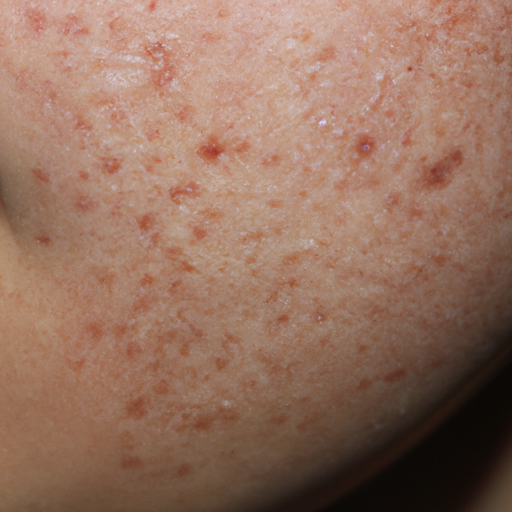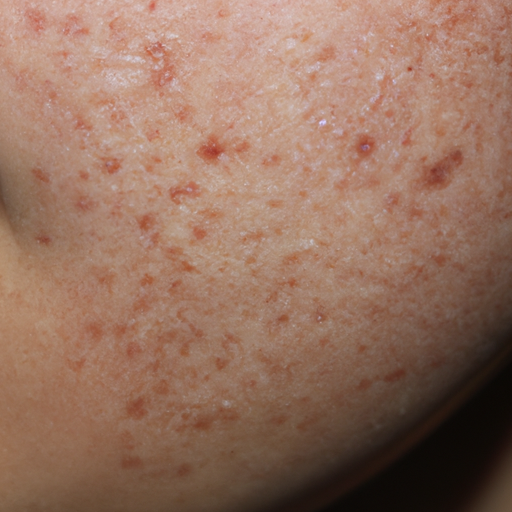Title: Unmasking Clear Skin: Dermatologists Reveal Top Acne Relief Strategies
As a dermatologist, I understand the frustration and distress that acne can cause. It’s not just a cosmetic concern; it can significantly impact one’s self-esteem and mental health. Over the years, I’ve seen countless patients struggling with this common skin condition, seeking effective solutions to achieve clear skin. Today, I want to share some top acne relief strategies that dermatologists recommend.
Firstly, understanding acne is crucial. Acne is a skin condition that occurs when hair follicles become clogged with oil and dead skin cells. It often causes whiteheads, blackheads or pimples, and usually appears on the face, forehead, chest, upper back and shoulders. Acne is most common among teenagers, though it affects people of all ages.
One of the most effective strategies to combat acne is maintaining a consistent skincare routine. This includes cleansing your face twice daily with a gentle, non-comedogenic cleanser to remove excess oil and dead skin cells. Avoid scrubbing your skin harshly as it can irritate the skin and worsen acne.
Another crucial component of your skincare routine should be moisturizing. Many acne products contain ingredients that dry the skin, so always use a moisturizer that minimizes dryness and skin peeling. Look for “non-comedogenic” on the label, which means it should not cause acne.
Additionally, make sure to use an over-the-counter product containing benzoyl peroxide or salicylic acid, which are proven acne-fighting ingredients. However, these can be drying and irritating for some people, so start with a lower concentration and increase it gradually.
Sun protection is also vital as some acne treatments can make your skin more sensitive to sunlight. Always apply a broad-spectrum sunscreen with an SPF of 30 or higher when you’re going outside.
Diet also plays a role in skin health. While research is still ongoing, some studies suggest that certain foods can trigger or worsen acne. These include dairy products and carbohydrate-rich foods like bread and chips. A diet rich in fruits, vegetables, lean proteins, and whole grains is beneficial for overall skin health.
Stress management is another often overlooked but important aspect of acne management. Stress doesn’t cause acne, but it can exacerbate it. Techniques such as yoga, meditation, and regular exercise can help manage stress levels and potentially improve acne.
While these strategies can significantly improve acne, it’s essential to remember that results take time. It’s not unusual to require several weeks or even months to see noticeable improvement. Patience and consistency are key.
In cases where acne is severe or doesn’t respond to over-the-counter treatments, a visit to a dermatologist is recommended. Prescription medications, including topical creams and oral drugs, are available. In some cases, procedures such as chemical peels, laser therapy, or drainage and extraction procedures might be necessary.
In conclusion, achieving clear skin is a multifaceted process that involves a consistent skincare routine, a balanced diet, stress management, and professional help when needed. As dermatologists, we are here to guide you on this journey and help you unmask the clear skin that lies beneath the acne. Remember, every person’s skin is unique, and what works for one might not work for another. Therefore, it’s crucial to understand your skin type and needs and tailor your skincare routine accordingly. With the right strategies in place, relief from acne is achievable.




